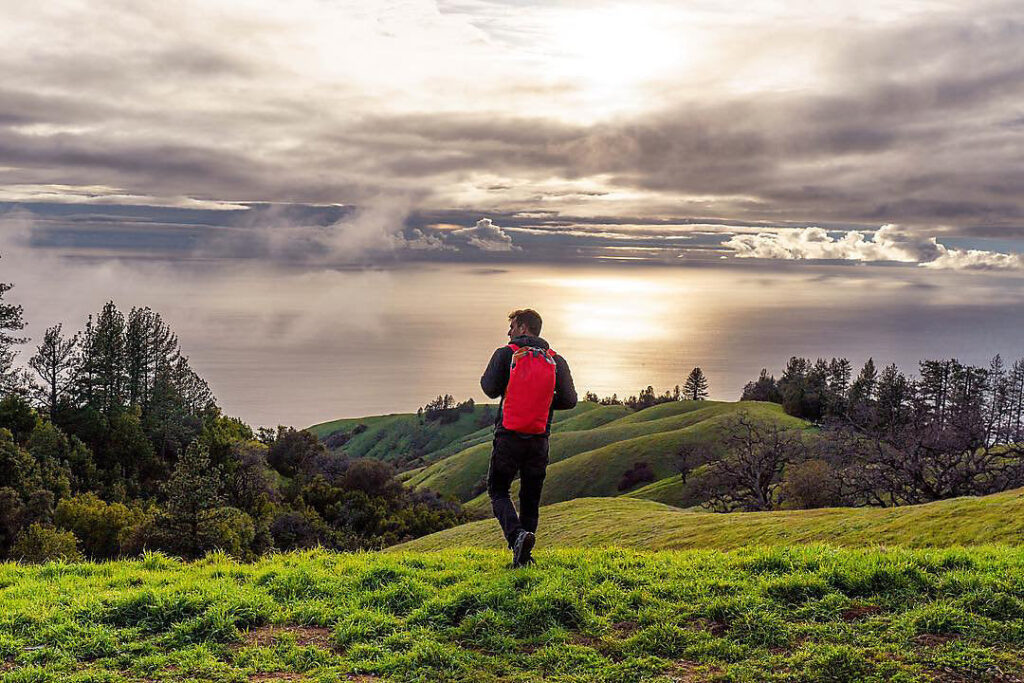In an era of unprecedented global connectivity, the way we travel and interact with new environments holds immense power. Conscious Exploration isn’t merely a trend; it’s a profound commitment to making a positive impact on the destinations we visit, the cultures we encounter, and the planet we share. This extensive article will guide you through the principles and practices of responsible travel, empowering you to embark on journeys that not only enrich your life but also contribute meaningfully to the well-being of local communities and the preservation of natural wonders. Prepare to transform your adventures into a force for good.
The Imperative of Conscious Exploration

The rise of global tourism has brought both immense benefits and significant challenges. Conscious exploration emerges as a vital response, recognizing our responsibility as global citizens.
A. Preserving Fragile Ecosystems: Many of the world’s most beautiful destinations, from pristine coral reefs to ancient rainforests, are incredibly fragile. Unchecked tourism can lead to pollution, habitat destruction, and disruption of delicate ecosystems. Conscious exploration prioritizes minimizing our environmental footprint, ensuring these natural treasures endure for future generations.
B. Supporting Local Economies Ethically: While tourism can bring economic benefits, not all tourism equally supports local communities. Conscious exploration directs funds directly to local businesses, artisans, and service providers, ensuring that the economic benefits are distributed equitably and genuinely uplift the people who call a place home.
C. Respecting and Honoring Cultures: Every destination has a unique cultural tapestry woven from traditions, beliefs, and ways of life. Unthinking tourism can lead to cultural commodification, disrespect, or erosion of authentic practices. Conscious exploration fosters genuine respect, encourages cultural exchange, and celebrates diversity without exploiting it.
D. Minimizing Negative Social Impacts: Rapid tourism development can sometimes lead to displacement of local residents, increased cost of living, or strain on local infrastructure and resources. Conscious exploration seeks to mitigate these negative social impacts by being mindful of our presence and its long-term effects.
E. Enhancing Personal Growth and Empathy: Engaging in conscious exploration forces us to think beyond ourselves. It cultivates empathy, broadens our worldview, and fosters a deeper understanding of global challenges and interconnectedness. This transformation makes us more compassionate and responsible individuals.
Pillars of Conscious Exploration
Conscious exploration is built upon several core principles that guide our choices and actions before, during, and after our journeys.
A. Environmental Stewardship: Treading Lightly:
1. Reduce Your Footprint: Minimize waste (e.g., use reusable water bottles, avoid single-use plastics), conserve energy and water, and choose eco-friendly transportation options.
2. Respect Wildlife and Habitats: Observe wildlife from a respectful distance, never feed wild animals, and support ethical animal encounters over exploitative ones. Adhere to protected area regulations.
3. Support Conservation: Choose tour operators and accommodations that demonstrate a commitment to environmental protection and contribute to local conservation efforts.
B. Economic Responsibility: Empowering Locals:
1. Buy Local: Purchase souvenirs, food, and services directly from local artisans, farmers, and small businesses rather than international chains or large resorts.
2. Fair Wages and Working Conditions: Choose tour operators and accommodations that are known for paying fair wages and providing good working conditions to their employees. Avoid engaging in activities that exploit labor.
3. Community-Based Tourism: Seek out and support initiatives where tourism is managed and owned by local communities, ensuring benefits stay within the local economy.
C. Social and Cultural Sensitivity: Honoring Heritage:
1. Learn and Respect Local Customs: Research and adhere to local dress codes, greetings, social etiquette, and traditions. A little effort goes a long way.
2. Ethical Photography: Always ask for permission before taking photos of people, especially in sensitive cultural contexts. Be mindful of privacy and dignity.
3. Engage Authentically: Seek genuine interactions with locals. Participate in cultural exchanges, learn basic phrases, and engage in respectful dialogue.
4. Avoid Commodifying Culture: Be wary of experiences that seem to “perform” culture for tourists rather than representing authentic traditions.
D. Personal Responsibility: Being an Aware Traveler:
1. Educate Yourself: Continuously learn about the destination’s challenges, opportunities, and the impact of tourism.
2. Mindful Consumption: Be conscious of your resource use and waste generation.
3. Leave No Trace: Follow “pack it in, pack it out” principles, even in urban environments.
4. Give Back (Thoughtfully): If volunteering, choose reputable organizations with clear ethical guidelines. Avoid “orphanage tourism” or other forms of voluntourism that might do more harm than good.
Planning Your Conscious Exploration
Transforming good intentions into positive impact requires meticulous planning and informed choices before you even depart.
A. Define Your Impact Goals: Beyond where you want to go, what positive impact do you want to have?
1. Environmental Focus: Is it minimizing waste, supporting wildlife, or contributing to conservation?
2. Community Focus: Is it supporting local livelihoods, preserving traditions, or aiding social development?
3. Personal Growth Focus: Is it expanding your empathy, learning a new perspective, or becoming a more responsible global citizen?
Clearly defined goals will guide your choices.
B. Thorough Research for Responsible Choices: This is your most critical planning phase.
1. Ethical Tour Operators: Look for certifications (e.g., B Corp, specific eco-tourism labels), transparent policies on staff wages, and genuine community involvement. Read reviews carefully.
2. Sustainable Accommodations: Research hotels/guesthouses with eco-friendly practices (e.g., water/energy conservation, waste management, local hiring policies, fair trade sourcing). Consider homestays for direct local benefit.
3. Transportation Choices: Prioritize lower-impact options like trains, buses, or cycling over internal flights where possible. Consider carbon offsetting for unavoidable flights (though this is a compensatory measure, not a reduction).
4. Local Activities Research: Vet any animal-related activities to ensure they are ethical and do not exploit animals. Research cultural tours to ensure they are respectful and authentic.
C. Budgeting for Responsible Travel: Conscious exploration isn’t necessarily more expensive, but it requires mindful allocation.
1. Value Over Cheapness: Prioritize businesses that genuinely support local communities and protect the environment, even if they’re slightly more expensive than exploitative alternatives.
2. Direct Spending: Plan to spend your money directly with local businesses: artisans, farmers markets, small restaurants, locally-owned guesthouses.
3. Contingency Fund: Always budget an emergency fund for unexpected situations, which also ensures you don’t compromise ethical choices due to financial pressure.
D. Pre-Trip Cultural and Environmental Education: Prepare yourself to be a respectful visitor.
1. Learn Basic Phrases: Essential greetings and polite expressions in the local language demonstrate respect.
2. Study Local Customs: Understand dress codes, dining etiquette, social norms, and any specific taboos.
3. Research Local Environmental Issues: Understand the specific environmental challenges the destination faces (e.g., water scarcity, plastic pollution) to inform your actions.
E. Packing for Positive Impact: Every item you bring or don’t bring matters.
1. Reusable Items: Water bottle, coffee cup, shopping bags, cutlery set.
2. Eco-Friendly Toiletries: Biodegradable soap, reef-safe sunscreen.
3. Appropriate Clothing: Culturally sensitive and suitable for the climate.
4. Minimize Waste: Pack items with minimal packaging.
5. Donation Considerations (Carefully!): If considering donations, research what is truly needed beforehand and deliver directly to organizations, not individuals, to avoid creating dependency. Avoid bringing candy or pens for children, which can create a begging culture.
Actions During Your Journey

Your choices and behaviors while on your journey are where your positive impact truly comes alive.
A. Engage with Locals Respectfully and Authentically:
1. Practice Your Language Skills: Even a few words can open doors.
2. Listen Actively: Seek to understand local perspectives, even if they differ from your own.
3. Ask Permission for Photos: Always, especially with children or in sensitive contexts. Respect “no.”
4. Avoid Stereotypes: Challenge your own biases and engage with individuals, not generalized assumptions.
B. Support Local Economies Directly:
1. Dine Locally: Eat at small, family-run restaurants and street food stalls.
2. Shop at Markets: Buy fresh produce and handmade crafts directly from local vendors.
3. Hire Local Guides: Opt for certified local guides who can offer authentic insights and whose income directly supports their community.
4. Stay in Local Accommodations: Choose guesthouses, homestays, or locally owned boutique hotels.
C. Minimize Your Environmental Footprint:
1. Conserve Resources: Be mindful of water and electricity usage, especially in areas with limited resources.
2. Reduce Waste: Say no to single-use plastics, carry your reusable items, and dispose of waste properly (or pack it out if facilities are absent).
3. Stay on Marked Trails: Protect delicate ecosystems by sticking to designated paths.
4. Support Conservation Initiatives: Visit and contribute to local nature reserves or conservation projects.
D. Be Mindful of Your Social Impact:
1. Dress Appropriately: Respect local customs, especially when visiting religious sites or conservative areas.
2. No Begging: Avoid giving money or gifts to beggars, especially children, as it can inadvertently perpetuate cycles of dependency. If you wish to help, donate to reputable local NGOs.
3. Bargain Fairly: If bargaining is customary, do so respectfully and acknowledge the value of local labor. Don’t push for rock-bottom prices that undermine livelihoods.
E. Practice Mindfulness and Presence:
1. Observe Deeply: Take time to observe the nuances of daily life, the natural beauty, and the interactions around you without constant digital distraction.
2. Reflect on Your Impact: Regularly check in with yourself. Are your actions aligning with your impact goals?
3. Learn from Experiences: Every interaction and observation is an opportunity to learn and grow as a conscious explorer.
Challenges in Positive Impact Travel
Conscious exploration isn’t always straightforward. You might encounter situations that challenge your principles.
A. Identifying Truly Ethical Businesses/Organizations:
1. Beware of “Greenwashing”: Some businesses superficially promote eco-friendly claims without genuine commitment. Look for certifications, transparency reports, and independent reviews.
2. Ask Questions: Don’t hesitate to ask businesses about their sustainability practices, fair labor policies, or community involvement.
B. Dealing with Poverty and Begging:
1. Avoid Direct Handouts: While well-intentioned, direct cash handouts can create dependency or attract exploitation.
2. Support Through Local Economy: The best way to help is by spending money ethically in local shops, restaurants, and tours, empowering adults to earn a livelihood.
3. Donate to Reputable NGOs: If you want to contribute, find verified local charities or NGOs that address root causes of poverty.
C. Cultural Misunderstandings and Faux Pas:
1. Research and Learn: Your pre-trip cultural research is your first defense.
2. Observe and Adapt: Watch how locals behave and adjust your actions accordingly.
3. Apologize Graciously: If you make an unintentional mistake, a sincere apology (even in broken language) is usually appreciated.
4. Seek Clarification: Politely ask for an explanation if you’re unsure about a custom.
D. Balancing Personal Enjoyment with Ethical Responsibility:
1. Conscious Choices: Recognize that every choice has an impact. Make conscious decisions that align with your values, even if it means a slight compromise on personal convenience.
2. Educate Companions: If traveling with others, gently share your principles and encourage them to participate in conscious exploration.
3. Accept Imperfection: Strive for best practices, but don’t let perfection be the enemy of good. Every small step counts.
E. Safety vs. Authenticity:
1. Prioritize Safety: Never compromise your personal safety for the sake of an “authentic” experience.
2. Informed Risk-Taking: Make informed decisions. If a situation feels genuinely unsafe, it’s okay to opt out.
Sustaining Positive Impact and Continuous Growth
The impact of conscious exploration doesn’t end when you return home. Integrating its lessons ensures lasting positive change in your life and the world.
A. Deep Reflection and Integration: Process the profound experiences and insights gained.
1. Journal Your Learnings: Document how your perspectives have shifted, what you learned about global challenges, and how your actions contributed to positive impact.
2. Share Your Story Ethically: Articulate your experiences with friends, family, or relevant communities. Focus on the positive impact you witnessed or contributed to, and the lessons learned.
3. Synthesize Insights: How will your experience inform your future consumer choices, civic engagement, or daily habits?
B. Apply Conscious Principles to Daily Life:
1. Sustainable Consumption: Continue minimizing waste, conserving resources, and making ethical purchasing decisions in your home life.
2. Local Support: Prioritize supporting local businesses and community initiatives in your own hometown.
3. Global Citizenship: Stay informed about global issues, advocate for responsible practices, and extend your empathy to diverse communities beyond your travels.
C. Advocate for Responsible Travel:
1. Educate Others: Share your knowledge and experiences to inspire friends, family, and your broader network to adopt conscious exploration principles.
2. Support Ethical Businesses: Continue to support and promote tour operators, accommodations, and businesses that uphold strong ethical and sustainable practices.
3. Be a Voice: Speak up for responsible tourism and conservation efforts in online forums, social media, or local discussions.
D. Fuel Your Next Conscious Journey: The more you explore consciously, the more you realize the potential for positive impact.
1. Maintain a “Responsible Travel Wishlist”: Keep a running list of destinations or experiences that align with your values for future conscious explorations.
2. Refine Your Skills: Each journey hones your ability to plan, execute, and reflect on responsible travel, making you a more effective positive force.
3. Embrace Lifelong Learning: Conscious exploration is a continuous journey of learning, adapting, and striving to be a better global citizen.
Conclusion
Conscious Exploration is a powerful invitation to travel not just for personal enjoyment, but as an active participant in building a better world. By committing to making a positive impact—environmentally, economically, and culturally—you transform every journey into a profound act of global citizenship. This approach enriches your travel experiences beyond measure, leaving you with deeper connections, expanded perspectives, and the profound satisfaction of knowing you’ve contributed to something greater than yourself. So, pack your bags with intention, open your mind with respect, and step boldly into a new era of travel. Your next impactful adventure awaits, ready for you to shape its positive story.







